par Irnerio SEMINATORE
Ex: http://www.ieri.be/fr/publications/wp/2021/avril/la-dialectique-de-la-libert-et-de-l-galit-au-c-ur-du-monde-historique
Table des Matières
De l'homme de "raison" à l'homme "sans surmoi"
Tocqueville, l'amour de l'égalité et l'imaginaire démocratique
Edmund Burke, l'esprit de réforme contre l'esprit de système
Comment la dialectique de l'égalité et la liberté influence-t-elle la conception de la démocratie et sa pratique ?
Démocratie et Liberté : Penser la démocratie est-il encore penser la liberté ?
L'émancipation sexuelle et le combat contre la naturalisation du concept d'inégalité
La "théorie du genre" et la théorie critique de la société. Déconstruction et naturalité apparente
Exodes de masse, théories de l'inégalité naturelle et théories de la "race". Deux variantes d'une théorie des origines
Inégalités de nature et de race
De la Déclaration de l'Unesco de 1950 à la première carte du génome humain de l'an 2000 (Marantz Henig)
Mouvances identitaires et minorités ethniques en Europe et aux États-Unis
Le Comte Joseph Arthur de Gobineau et son "Essai sur l'inégalité des races humaines" (1853-1855)
La vérité de l'Europe d'aujourd'hui
Du domaine de la liberté et de la chute de l'empire occidental au nouveau "Moyen Age"
***
De l'homme de "raison" à "l'homme sans surmoi"
La disparition de l'homme de raison, sur lequel a été bâtie la République d'hier et la philosophie morale du XIXème siècle, suscite de nos jours indifférence ou dérision. L'effacement des "vertus" des anciens, ne représente pas seulement la disparition de la liberté, mais la disparition de la "raison", qui était une sorte de loi morale partagée. Ainsi, dépourvue d'une volonté générale, l'homme de notre temps, "l'homme sans surmoi", tend à satisfaire ses besoins pulsionnels immédiats et, en se conformant au principe du plaisir, devient une créature flottante , indifférente à son destin.
L'ennemi de la liberté est-il toujours celui de hier? N'est-il pas aujourd'hui la faiblesse de l'homme sans idéaux, le contraire de "l'homme de raison" de jadis, ennemi, à son tour, de l’État répressif ? C'est un homme de décadence et de soumission, dépuré d'obligations et de devoirs, en particulier nationaux, fils d'une laïcité sans transcendances. On a assimilé cet homme à un homme libre de tout pouvoir coercitif, mais il s'agit en réalité d'un sous-homme, ni libre, ni émancipé, victime de ses désirs et de ses émotions et esclave de trois maîtres, la loi morale, le principe du plaisir et la pénurie des normes ou d'archétypes Un homme anomale, ni national, ni vraiment global et dépourvu de "Daïmon" et de puissance d'interdiction.
La relation entre égalité et liberté assure-t-elle encore la survie des régimes démocratiques vis-à-vis de leurs ennemis, privés et publiques, la tyrannie des minorités et la fracturation convergente des sociétés?
La France décline aujourd'hui à cause de la dissolution de son identité et de sa discorde civile, la Grande-Bretagne se distingue du continent et se sépare du despotisme et du vide de l'Union européenne, forte de sa liberté insulaire retrouvée et de son goût de conquête renaissant et l'Allemagne, au commande de l'Union, par sa puissance reconquise, imprime à la dérive des autres peuples d'Europe, un coup de barre stratégique dans les relations internes et internationales.
Dès lors, une cruelle question se pose :"A qui profite aujourd'hui la liberté? A qui profite la démocratie, institution principielle de la liberté? Les restrictions des libertés publiques obligent à nous interroger sur la démocratie défaillante et à mettre en exergue l'égalité des conditions, l'intégration illusoire de corps étrangers et des "niggers" du monde entier, unifiés par la puissance de l'exclusion, la barbarie de leurs état de conscience, l'arme médiatique de la novlangue universelle et les illusions welfaristes d'un continent gangrené et introuvable .
Vivons nous, derrière les rideaux de la grande histoire, une conception instrumentale de la démocratie, liée à la logique de puissance et à l'hégémonie planétaire du système? Certes, l'affaiblissement de l'Europe, la survie de la Russie et la montée de la Chine, induisent à penser à une guerre culturelle souterraine, une guerre de modèles politiques, qui a ses objectifs propres et qui conduit à une conquête des esprits, engendrant une dispersion des opposants et un regroupements par parentés choisies.
Cependant le but de guerre systémique est d’empêcher la naissance d'un adversaire et, pire encore, d'une alternative crédible. En Europe,affaiblie par la diffusion des hommes sans "surmoi", la bataille pour la liberté est une bataille pour la survie de nos cultures et de nos nations Elle a commencé avec Tocqueville (1805-1859), l'amour de l'égalité et la naissance de l'imaginaire démocratique.

Tocqueville, l'amour de l'égalité et l'imaginaire démocratique
Dans "De la Démocratie en Amérique", Tocqueville avait bien vu que l'amour de l'égalité était au cœur de l'imaginaire démocratique, consistant à prétendre à l'égalisation des conditions et il avait en même temps constaté que l'individualisme qui accompagne cet égalitarisme est un repli privatiste sur soi, qui peut ouvrir la voie au despotisme social d'un État protecteur.
Ce refus de tout paternalisme politique et ce désir que la préférence individuelle ne vienne entraver la réalisation de soi a conduit à l'élaboration de la doctrine de "l'individualisme possessif" de C.B. Mackperson, pour qui la liberté individuelle est l'expression de la propriété de soi, pouvant aboutir au refus d'adhérer à la société. Ainsi suivant cette doctrine, la conception abstraite de la démocratie comme contrat entre égaux se concrétiserait en un immense phalanstère de copropriétaires, sans solidarité et sans obligations réciproques. Puisque adhérer à la démocratie, c'est adhérer d'abord à l'idéologie démocratique et successivement à un régime politique, une des principales fonctions de ce régime est de reproduire la hiérarchie dirigeants/dirigés et de garantir la consolidation d'une oligarchie, fondée sur le binôme commandement-obéissance. L'abus le plus significatif de notre époque demeure encore, depuis le début de l'âge moderne, la critique acérée de la société et de ses institutions au nom de la "raison". Ortega y Gasset avait déjà identifié cet usage dans l'approche critique du concept de la "raison pure", ayant pour objectif la lutte intellectuelle contre la tradition.
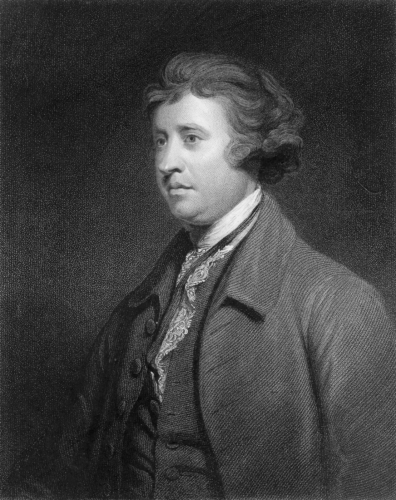
Edmund Burke, l'esprit de réforme contre l'esprit de système
Edmund Burke repère l'esprit de système qui a conduit à la révolution française dans l'adhésion du peuple et de ses chefs à des valeurs sans justification rationnelle évidente. Il insiste sur le fait qu'une doctrine fondée sur des propositions abstraites, telle la "liberté" ou les "Droits de l'Homme" est un corpus d'énoncés hypostasiés qui permet une utilisation contradictoire de la doctrine, notamment de la part du pouvoir sans que des limites soient portées à l'exercice d'éventuels abus.
Le caractère concret et inductif de sa vision du monde et de la société pousse Burke à privilégier l'induction sur la déduction rigoureuse "à la Condorcet" et à valoriser les approches naturalistes et organicistes, les seules capables de défier les fausses évidences et le temps. Stigmatisé comme réactionnaire et justifiant une société inégalitaire, Burke assigne un rôle central à la tradition et aux préjugés.
Puisque les hommes sont déterminés par des sentiments innés et demeurent profondément attachés à leurs convictions, simplifiés et schématiques, les préjugés consentent une prévisibilité des conduites dans des situations critiques, car les capacités de réflexion et de jugement des individus sont extrêmement limitées et "le fonds universel des natures et des époques", bref le naturalisme historique, offre la matière première pour apprendre de l'expérience et décider des situations.
Comment la dialectique de l'égalité et la liberté influence-t-elle la conception de la démocratie et sa pratique ?
L'idée démocratique des modernes ne s'est pas développée de manière simple. L'instabilité de la démocratie, et la tendance à la corruption de ses principes font associer à celle-ci des images de désordre et d'anarchie, et aujourd'hui de bureaucratie. Or, si la démocratie, comme régime politique de la modernité, est davantage liée à la société égalitaire et à la passion souvent ardente pour l'égalité, la démocratie des républiques grecques et romaines est ancrée aux libertés politiques et à l'intervention directe du peuple dans les affaires publiques. Le "sens" de la démocratie chez Tocqueville est ainsi explicité : "la démocratie constitue l'état social, le dogme de la souveraineté du peuple constitue le droit politique". Selon cette formule, la notion d'égalité inscrite dans la devise de la République française et donc dans "la Déclaration des Droits de l'homme et du citoyen" de 1789 serait au cœur des préoccupations de la démocratie moderne. Or, si "la première et plus vive passion pour l'égalité des conditions est l'amour même de cette égalité..., c'est vers cet idéal que tendraient les peuples démocratiques". (Tocqueville)
Nous remarquerons en revanche que c'est sur le contenu et la nature de cet idéal que se sont manifestés les plus grands équivoques et déchaînés les plus grandes passions. Cette égalité est-elle générale ou de classe ? Est elle nationale ou internationale? Peut-elle être revendiquée avec les mêmes droits et la même légitimité par des populations de souche ou par des immigrés ?
"L'égalité, dans son degré le plus extrême peut-elle se confondre avec la liberté ?" (Tocqueville).
L'égalité forme, d'après Tocqueville, le caractère distinctif de l'époque (XIXème), et plus loin, il ajoute "les peuples démocratiques ont un goût naturel pour la liberté."

Alexis de Tocqueville invoque un idéal qui était celui d'un Français sur le continent américain. Or, en Europe et dans l'Amérique d'aujourd'hui, en Russie et dans la Chine du XXIème siècle, la démocratie est encore loin de désigner l'idéal politique et social sur lequel pourrait y avoir un accord entre historiens et philosophes ou entre peuples et classes travailleuses. Encore moins là où le désaccord est plus grand entre minorités immigrées et majorités de souche, minorités qui recherchent la réalisation de l'égalité entre citoyens par l’État et qui espèrent en leur salut et en leur bonheur par un nivellement inévitable et un aplatissement général des conditions de la société.
Démocratie et Liberté : Penser la démocratie est-il penser la liberté ?
Le régime démocratique exige un minimum de foi ou de volonté commune accompagnées par la reconnaissance d'une élite dirigeante ayant confiance en elle-même et en sa propre mission. Or, la masse de l'immigration vit en large partie en dehors du système politique dont elle bénéficie et notamment en termes de politiques sociales. De ce fait, s'il ne peut y avoir de participation à la vie publique ni d'esprit critique, dans le désamour ou dans le mépris de la société, il ne peut y avoir de politique sans "l'affectio societatis", soit elle de la colère ou de la passion. L'idée selon laquelle la liberté n'est guère la jouissance d'un avantage mais la limitation d'un pouvoir, pouvant être exercé sans limites, est loin d'être acceptée par les masses ou par les fauteurs de clientèles et l'autre perception selon laquelle l'idée d'une société de liberté serait celle dans laquelle les citoyens n'auraient rien à craindre et seraient sûrs de leurs biens et de leurs personnes n'est pas, non plus, l'idée d'une société hétérogène et divisée, aliénée à d'autres Dieux et à d'autres vérités, bref multiculturelle.

Et encore l'idée de liberté comme refus de nuisance vis à vis d'autrui, ne peut être pensée dans l'insécurité de la vie commune ni encore dans l'impunité des sanctions en cas de crime ou, plus encore, dans l'appel au meurtre (fatwa). Mais telle est la désillusion des apologistes de la démocratie d'admettre que, dans beaucoup de cas, la liberté est restreinte et la démocratie inefficace ou limitée. Les conditions civiques de la liberté ne sont pas réunies parce que manque la figure du « civis », remplacée par celle du squatteur de la cité, autrefois politique.
L'analyse sociologique confirme la double dissociation des droits entre citoyen et immigré et entre citoyen concret et homme abstrait. Ce dernier n'appartient en fait à aucune collectivité ou cité,en mesure de lui imposer le respect des droits et des devoirs.
La crise actuelle des démocraties et, en particulier des démocraties libérales, est due non seulement à l'absence d'une "vérité commune" ou d'un "sens" sociétal partagé mais à l'inexistence d'une force de conviction qu'impose la doctrine de la liberté, face à la corruption de l'idée d'égalité et à sa pathologie sociale et politique.
Si, à titre d'hypothèse, la conception de la liberté se confondait, dans l'état de nature, avec la puissance physique qu'impose le respect d'une hiérarchie et d'un ordre fondés sur la force, le contenu de la liberté ne pourrait être l'égalité, mais la supériorité d'une règle, en mesure d'atténuer la prédominance de la force sans lois et d'atténuer l'écart entre forts et faibles.
Si la liberté moderne se définit formellement grâce à l’État et en même temps contre lui, les revendications contre l’État et le gouvernement politique affecteront presque automatiquement tous ceux qui demandent la protection de l’État, ou encore ceux qui demandent l'extension illimitée de son action pour des raisons inhérentes à leur survie (assistés multiples, populations immigrées, groupes intellectuels solidaires, chômeurs de longue durée, etc). Le sentiment des premiers est la solidarité, celui des damnés de la mer, l'indigence, le secours et l'exclusion, dicté par l'incompatibilité culturelle, morale et sociale de leurs revendications.
La liberté de choisir la formule politique, les gouvernants de la cité ou les élites du pouvoir est le propre de l'âge moderne.
Ce qu'il faut mettre en exergue ici est la persistance d'une critique anarchiste de la société, différemment habillée ou travestie, qui, au nom de l'égalité, critique la structure inégalitaire de la société. Cette critique ne peut éliminer le pouvoir en tant que concept, fonction ou réseau. Elle est dans l'incapacité d'apporter une contribution aux réformes, en prétendant combattre le "statu quo", déconstruire la structure sociale ou remettre en cause ce que les siècles ont légué. Il s'agit du type de pensée qui prétend "dénaturaliser" les concepts organiques du fait social, relativiser les principes historiques et se battre contre la "nature" humaine et contre "l'homme" concret, dans ses rapports d'amour, de famille et de société.

L'émancipation sexuelle et le combat contre la naturalisation du concept d'inégalité
L'utilisation critique du concept de "raison" se poursuit aujourd'hui dans le combat militant conduit contre la notion de "nature" et la "naturalisation du concept d'inégalité" par la "théorie du genre". Considérant que le champ des inégalités recouvre tout entier le domaine du politique et du social, le concept structurant de ce champ est celui de pouvoir, de hiérarchie et de domination. Ainsi, la critique menée contre la naturalisation du concept d'inégalité s'est attaquée à la distinction homme/femme/identité/altérité. Le but en a été de remettre en cause les legs de l'héritage génétique et de revendiquer une égalité entre les sexes qui secoue la plus ancienne distinction humaine, celle des "genres", attribuée désormais à une causalité socio-culturelle, Adam et Eve, sortis du paradigme métaphysique et mythologique de l'imaginaire social, seraient ainsi les enfants édéniques d'une société pré-créationniste. Dans son combat contre la prétendue naturalisation des différences, l'historienne et féministe américaine Joan W. Scott a engagé une véritable croisade contre la construction culturelle et artificielle des différences et des inégalités. Partant de l'Histoire sociale marxiste, elle est parvenue à l'Histoire des femmes, en passant par la lutte des classes et en prônant d'abord l'émancipation sexuelle, puis la question raciale.
La "théorie du genre" et la théorie critique de la société.
Déconstruction et naturalité apparente
Plaçant en exergue de son article "l'Histoire comme critique" une citation de Michel Foucault "la critique sera l'art de l'inservitude volontaire et de l'indocilité réfléchie", son projet apparaîtra comme clairement individualisant.

Plus récemment, à l'occasion de la deuxième édition du colloque "Penser l'émancipation" (de février 2014 - Université de Nanterre), Joan W. Scott a prolongé son incursion dans le domaine des discriminations raciales que subiraient les personnes issues de l'immigration. Elle a proposé une généalogie des "usages racistes" de l'émancipation sexuelle, qui permettraient l'exclusion des musulmans. Ces derniers seraient marginalisés, comme les femmes,en violation d'un droit fondamental de citoyenneté, totalement imaginaire, "Le droit d'avoir des droits", une critique qui ignore tout aussi bien la notion de droit, comme correspondance entre droits et devoirs, que celle de citoyenneté, de source nationale, et, pour terminer, celle du contexte historique (celui de la "raison" des Lumières ). Dans ce contexte, la revendication des droits ne concernerait que l'égalité entre Français, séparés en castes mais homogènes en conditions et en culture, et ne confonderait pas la revendication identitaire des français avec celle des groupes venant de civilisations, de religions, d'histoires et de races, hétérogènes et incompatibles avec la France et infiniment distantes, en expérience historique et en perspective de vie. Ainsi, le projet féministe de "déconstruction" de la naturalité apparente de l'hétérosexualité, part de l'idée de subvertir les cadres de l'analyse historique. Son concept central demeure "une entreprise féministe (et non sociale...) de dénaturalisation du sexe" ce qui creuse un écart insurmontable entre les objectifs partiels de l'analyse et les ambitions générales de l'approche.
En réalité, la signification revendiquée est celle de dénoncer dans les différences entre les sexes, la force discriminante des rapports de pouvoir. La pauvreté théorique de l'argument tient au refus proclamé de maintenir le "statu quo" et de tolérer la coexistence de deux universalismes contradictoires. Ainsi, ce qu'on appelle la "théorie du genre", n'est guère une démonstration des multiples inégalités sociales, mais un simple postulat de l'enquête, car les sciences permettent de plus en plus aujourd'hui de mettre à jour l'influence des incontournables différences biologiques sur les motivations et les réactions humaines, indépendamment de l'environnement social. C'est remettre en cause la construction sociale du féminisme par rapport à celle fondée sur l'inné et le biologique. La "théorie queer" s'interdit ainsi d'analyser les subjectivités en elles mêmes et se limite à l'examen des "discours" des sujets, marginalisés par la sociologie ou abordés en termes militants et doctrinaux.

Exodes de masse, théories de l'inégalité naturelle et théories de la "race".
Deux variantes d'une théorie des origines
Les théorisations contre l'égalité et pour la reconnaissance des inégalités naturelles comme facteurs de dynamisme et de "progrès" de la société sont battues en brèche aujourd'hui par un phénomène, puissant et inclassable, une immigration de masse en Méditerranée qui peut être définie comme "un exode inter-continental" ou comme une "invasion des Suds du monde". Si la théorie de l'inégalité a pour origine la société, ces inégalités peuvent être supprimées, en agissant sur les grande tendances sociétales, par la volonté politique européenne. Or, cette immigration incessante et indifférenciée est un révélateur historique des sociétés périphériques et faibles et a comme dénominateur commun la misère et le sous-développement
Cette invasion pose à l'Europe trois problèmes :
-
d'accueil et d'intégration
-
d'hétérogénéité religieuse et raciale
-
de différenciation civilisationnelle avec les populations européennes de souche
Trois problèmes qui sont refoulés avec vigueur par la pensée sociologique et dont le plus gênant est celui d'inégalité de nature et de "race", qui ne peuvent être supprimées. Concepts démonisés, escamotés et improférables à cause des fantasmes du passé qu'ils évoquent. Et surtout concepts à éradiquer "ab imis fundamentis" selon la doctrine humanitariste, totalitaire et officielle.
Inégalités de nature et de race
Commençons par le concept de "race" pour passer ensuite aux principes de religion et "d'humanisme". L'idée d'une inégalité morale, intellectuelle et civilisationnelle, fondée sur la nature et le sang, le faciès, le caractère et la volonté, a constitué monnaie courante en Europe pendant les deux derniers siècles.
Les doctrines politiques qui s'en sont réclamées jusqu'au nazisme ont considéré que la force motrice du progrès et de l'histoire était la lutte des races et pas la lutte des classes, pour l’accaparement des ressources et pour la survie de l'espèce.
Les doctrines raciales ont dénoncé la lutte des classes comme un faux combat. Toute la culture entre les groupes humains est fondée, selon l'idéologie darwinienne, sur l'inégalité de nature, de sang, de religion, d'origine et surtout sur la différente créativité symbolique et scientifique des peuples.
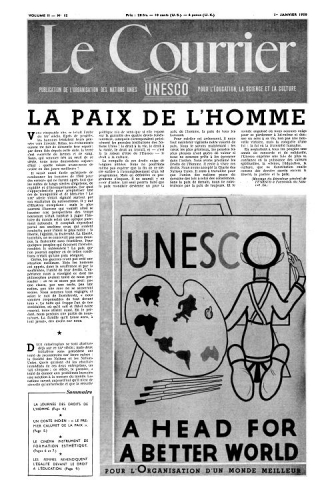
De la Déclaration de l'Unesco de 1950 à la première carte du génôme humain de l'an 2000 (Marantz Henig)
L'interdiction de penser cette évidence a été à la base de la Déclaration de 1950**, lorsque les experts réunis par l'UNESCO mirent au ban les "principes de la race" pour affirmer l'unité biologique fondamentale de l'espèce humaine. Le danger à conjurer était la répétition du génocide nazi, de la Shoah et d'Auschwitz.
L'abandon progressif de la notion de race dure jusqu'à la publication de la première carte du génome humain (juin 2000), confirmant que "la notion de race n'a aucun fondement génétique et scientifique" (Marantz Henig, 2000). Ce document ne pouvait nier la pertinence sociale et historique du problème. Ainsi, les travaux de la période récente s'orientent vers l'exploration de la diversité de l'espèce et tendent à prouver que l'analyse des données génétiques autorise à faire la distinction de la différenciation des individus originaires d'Europe, d'Afrique et d'Extrême Orient. Par ailleurs, l'appartenance raciale, à caractère identitaire, est de plus en plus revendiquée par des minorités ethniques, surtout aux États-Unis. Celles-ci s'affirment comme Afro-Américaines, Asiaméricaines et Amérindiennes. Il s'agit d'une revendication qui n'est pas seulement d'ordre morphologique, mais aussi culturel et symbolique (sub-culture Woke).
Mouvences identitaires et minorités ethniques en Europe et aux Etats-Unis
Une toute autre signification acquiert cette revendication en Europe. Ici, la mouvance identitaire est double et délimite des "frontières" culturelles et religieuses qui opposent des populations européennes de souche aux immigrés. La revendication de souche (et de droite) n'opère pas sous couvert d'une loi ou d'une protection juridique, mais en opposition à celle ci, légitimée par le mépris silencieux et contesté de la majorité, vis à vis des minorités. En revanche, la revendication des populations issue de l'immigration ne se limite pas à la seule contestation de la culture et des mœurs des pays d'accueil mais affirme violamment, sous la protection de la loi, sa haine et son hostilité vis à vis de la civilisation occidentale. Le radicalisme de cette mouvance (islamo-gauchiste) confirme la force du sang et de l'héritage, comme facteurs activants de la contestation racialiste Nous assistons ici au rejet de la citoyenneté, de la démocratie et de l'humanisme, caractérisant la constitution historique de la culture européenne. Il s'agit également du rejet d'une utopie désarmée, celle de l'Union Européenne et de la conversion à large échelle à une autre utopie, armée et militante, celle idéologique, des "niggers" et du Califat, pour laquelle l'homme n'est pas un être social, obéissant à la souveraineté de la raison, mais un croyant, obéissant à une loi supérieure et universelle, celle de la force pure ou de la Charia.
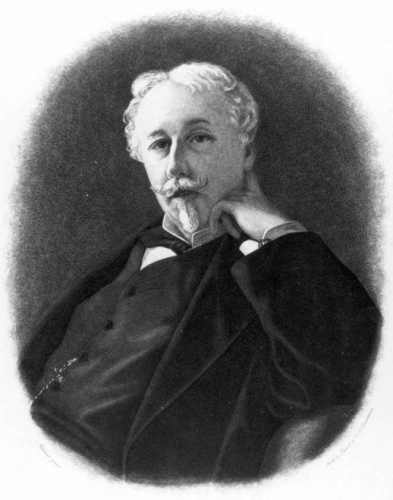
Le Comte Joseph Arthur de Gobineau et son "Essai sur l'inégalité des races humaines (1853-1855)
La disparition de l'homme de raison est elle aussi la disparition de toute autre explication d'ordre culturel, concernant l'inégalité des races humaines? Au regard des faits les plus récents, l'homme métissé et "l'homme sans surmoi", font tomber la fiction de l'égalité et justifient la légitimité de la violence et de l'insurrection, qui passe dans les mains des victimes émissaires (les anciens esclaves) et qui prétendent décoloniser les héritiers de l'esclavage et leur faire subir chez eux, les mêmes humiliations et "opprobres". Rien de cela ne serait possible sans une double émancipation, politique et idéologique du passé. Cette remise en cause de la "raison historique" repropose la question, insyndicable, arbitraire et également légitime: "Où commence-t-elle l'explication du présent par le passé et la fiction de l'égalité des modernes? Par la quête de l'inégalité "naturelle" des peuples ou par l'involution des premiers régimes démocratique de l'antiquité ancienne? Dans ces dilemmes sans reponse, l'histoire de l'oeuvre de Gobineau demeure indissociable de celle de son époque et de ses interprètes contemporains et successifs: l'eugéniste H.S.Chamberlain(1855-1927), l'anthropologue L.Woltmann(1854-1907) et le philosophe Schopenauer (1788-1860).
La vérité de l'Europe d'aujourd'hui
La vérité de l'Europe d'aujourd'hui est elle comparable à celle du Brésil du XIXème, observé et vécu par le Comte de Gobineau, qui prétendit expliquer par le processus historiques du "métissage", la marche de l’humanité vers un destin inéluctable, celui de sa mort? La vérité de Gobineau ne fut-elle pas travestie, successivement, par les théoriciens de l'eugénisme anglo-saxon et par les adeptes de la supériorité raciale allemande? "L'ignominieuse canaille brésilienne", ne rassemble-t-elle pas à la moelle vicieuse et pervertie de l'Europe d'aujourd'hui, sans vigueur et sans courage ? En effet, à la pure observation, la vérité de l'Europe d'aujourd'hui préfigure un temps où il n'y aura plus de place pour les européens de souche et pour les sujets-maîtres des espaces, acquis à la grandeur de la liberté, déchus par l'ordre égalitaire du métissage, l'ordre politique de la démocratie et l'ordre protecteur de ses lois,intégratrices ou assimilationnistes. L'Europe des Lumières historiques et l'Europe post-moderne de la "théorie du genre" auront péris sans aucun doute, à cause de la déchéance du monde européen et du métissage périlleux du multi-culturalisme.
Nous serons arrivé alors au bout de la condition mortelle de notre civilisation, minée de l'intérieur par l'injonction salvatrice du projet révolutionnaire du marxisme de jadis, interprète du "sens de l'histoire et converti aujourd'hui en son successeur idéologique et systémique, l'islamo-gauchisme.
Les mêmes principes destructeurs, l'égalité formelle et la démocratie, placent sur le même plan aujourd'hui les vieux bâtisseurs de cathédrales et leurs implacables et occultes fossoyeurs et ennemis. Cette fausse équivalence des blancs et des noirs, des ariens et des sémites, des hommes et des femmes et de leurs tristes caricatures, ne peut nous faire oublier que les batailles se gagnent ou se perdent toujours sur le terrain symbolique, celui des hiérarchies successives, propres à chaque groupe, ce qui ne peut donner des assurances aux peuples européens, désorientés de devoir se perpétuer dans le satanisme et le désordre racial.
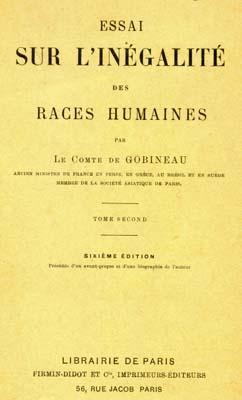 Joseph Arthur de Gobineau et les deux lois du genre humain
Joseph Arthur de Gobineau et les deux lois du genre humain
Mettant en scène les éléments hétérogènes qui prédominent en chaque ensemble ethnic, vivant côte à côte sur un même espace, Gobineau nous alertait déjà en 1853, sur le principe destructeur de cette cohabitation innaturelle, la répugnance secrète et ancestrale entre les hommes d'origine diverse, ainsi que sur les deux lois du genre humain, une d'attraction et de croisement et l'autre de répugnance et de rejet L'axiome politique qui prétendait à l'égalité réelle avait oublié que "les nations meurent, lorsque elles sont composées d'éléments dégénérés" et la dégénéressance signifie en effet que l'expérience historique a prouvé l'impossibilité de toute fraternité humaine, face aux diverses formes d'inégalité héritées, d'intellect,de morale ou de force créatrice.
Les exemples de notre période sont nombreux: l'Apartheid en Afrique du Sud (1960), les massacres d'européens et de Harkis, par le non respect des accords d'Evian de la part du FLN en Algérie (1962), les revendications Woke et "Black lives matter" aux Etats-Unis (2018) et en Europe (2020). Ainsi, par son goût de remonter le temps,les anticipations de Gobineau constituent des anticipations prophétiques pour le monde contemporain.
La longévité limitée des peuples et des civilisations, la cohabitation imposée et innaturelles de différentes races, l'apport très inégal à l'identité collective et au bien commun et l'absence d'entente envers les sociétés européennes en Europe, alimentent la naissance de situations explosives, lorsque les incompatibilités deviennent territoriales et la conjoncture internationale transforme des revendications locales en luttes sécessionnistes ou, lorsqu'une minorité déterminée ouvre un contentieux existentiel destiné à devenir "une cause". L'instabilité qui en résulte avance alors sur ce qu'on a appelé par le passé "une question nationale", autrement dit un choc probable et une séparation sanglante.
Du domaine de la liberté et de la chute de l'empire occidental au nouveau "Moyen Age"
Le malaise actuel des démocraties et leurs transformations en régimes politiques autoritaires, où joue puissamment l'instinct de survie et où les compromis du passé seront remplacés par la violence des affrontements identitaires, ne peut avoir qu'un aboutissement, au delà des analogies simplistes; l'établissement de formes de démocraties post-modernes de l'exécutif en Europe et des régimes militaires ou tribaux en Afrique ou ailleurs. Ce seront des fédérations versaillaises d’États et de pouvoirs multinationaux, en camps retranchés de la gouvernance globale, proches des bras armés de la défense collective, qui auront pour fonction de légitimer et de stabiliser les élites au pouvoir mais sans aucune indépendance, ni autonomie stratégique vis à vis du centre impérial. La force des oppositions en révolte sera compensée par la faiblesse des organisations des hommes sans "surmoi", coupés des peuples métissés, en tumulte permanent. La civilisation européenne résiduelle cultivera le souvenir des compromis sanglants de la guerre des "Cent ans", appliquée au nouvel état de nature et celui-ci sera marquée par des périodes de rupture, de désintégrations sociétales et de dérives tribales, sous les drapeaux de Léviathans surannés et de Behemots bibliques. Ces périodes marqueront la mort de la vieille civilisation et la naissance obscure de formes d'univers historiques et religieux, qui pourraient ressembler aux chûtes chaotiques d'un nouveau Moyen-Age, où des Traités inégaux seraient signés, pays par pays, avec les Chefs des Hordes tribales émergentes. D'invasions supplémentaires de métis, venant de provinces ravagées par la peste de la guerre et de la famine et soutenues par des puissances extérieures ennemies,alimenteront de flux constants les bidonvilles du désespoir comme les enfers humains de Calais, pendant que les "Focos" de la révolte interne videront les villes comme au Cambodge, légaliseront la vengeance raciale comme au Rwanda,feront la police ethnique comme à la Ville du Cap, porteront un siège semblable à celui de Constantinople par un nouveau Sultan et entreront dans Paris, Rome et Vienne, comme dans le Berlin de l'année zéro de l"Apocalypse germanique. Alors et alors seulement la dialectique de la liberté et de l'égalité prendra une fin provisoire, dans l'attente que les barbares apportent l'ordre de leurs civilisations par la force, l'âme de tout rachat et de tout espoir après les luxures meurtrières de Sodome et de Gomorre. Alors et alors seulement de nouveaux prophètes voudront écrire la Bible à l'envers, avant qu'Hérode ne massacre tous les innocents du monde et qu'une étape tournante et tragique ne fasse rentrer les événements dans l'histoire violente des civilisations.
Bruxelles (print le 23 janvier 2018, révisé le 29 mars 2021)
***
* organisé en février 2014 à l'Université de Nanterre
** « Déclaration d'experts sur les questions de race », Organisation des Nations Unies pour l'éducation, la science et la culture, Paris, le 20 juillet 1950. http://unesdoc.unesco.org/images/0012/001269/126969FB.pdf
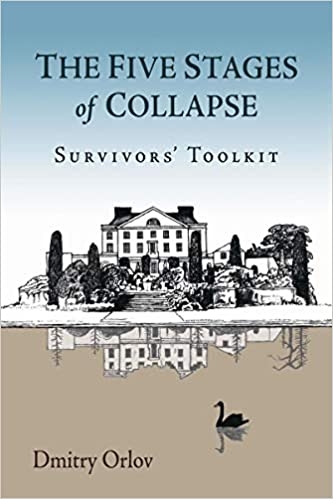 1. Je crois que seul le gouvernement fédéral peut et doit être le centre de pouvoir qui concentre les ressources et les dirige vers des activités qui ne peuvent ou ne doivent pas être gérées sur une base lucrative. Cette liste comprend toutes les activités qui forment la structure cohésive de l’État et qui lient les citoyens en un tout bien coordonné : l’exploitation et la protection des ressources naturelles, la construction de routes, les communications, la sécurité publique et la défense, les infrastructures sociales telles que les transports en commun et les installations de loisirs, les soins de santé et l’éducation. Tout cela doit être tenu par un seul ensemble de mains très fortes. Cela fait de moi un gauchiste totalitaire – un de ceux qui préconisent toujours un rôle accru pour le gouvernement.
1. Je crois que seul le gouvernement fédéral peut et doit être le centre de pouvoir qui concentre les ressources et les dirige vers des activités qui ne peuvent ou ne doivent pas être gérées sur une base lucrative. Cette liste comprend toutes les activités qui forment la structure cohésive de l’État et qui lient les citoyens en un tout bien coordonné : l’exploitation et la protection des ressources naturelles, la construction de routes, les communications, la sécurité publique et la défense, les infrastructures sociales telles que les transports en commun et les installations de loisirs, les soins de santé et l’éducation. Tout cela doit être tenu par un seul ensemble de mains très fortes. Cela fait de moi un gauchiste totalitaire – un de ceux qui préconisent toujours un rôle accru pour le gouvernement.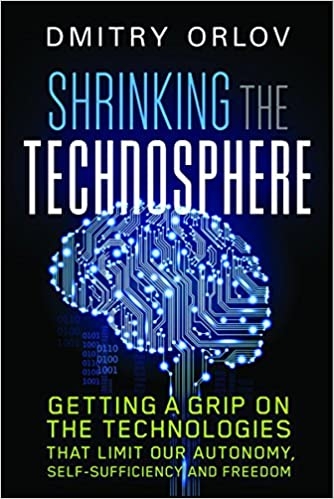 4. Afin de remplir toutes ses obligations énumérées dans la section 1 ci-dessus, le gouvernement doit avoir accès aux ressources. À cette fin, je crois que le gouvernement doit avoir un accès garanti à toutes les ressources dont il a besoin, quelle que soit la situation financière des particuliers ou des entreprises privées. Les retraites doivent être payées et les routes doivent être entretenues, quels que soient les sentiments des entreprises et des super-riches à ce sujet ou l’ingéniosité dont ils font preuve pour éviter les impôts en cachant leur argent dans des paradis fiscaux offshore et en utilisant d’autres astuces de ce genre. Encore une fois, la meilleure façon d’obtenir ces revenus est de fixer stratégiquement des taux sur l’utilisation des ressources, surtout des ressources énergétiques, qui devraient être réquisitionnées selon les besoins et maintenues sous le contrôle direct du gouvernement. Cela produira l’équivalent d’un système d’imposition progressif, puisque les riches consomment beaucoup plus que les pauvres. Cela fait de moi à la fois un socialiste – l’un de ceux qui se prononcent toujours en faveur de l’impôt progressif – et un capitaliste d’État – l’un de ceux qui croient en un secteur public important et rentable.
4. Afin de remplir toutes ses obligations énumérées dans la section 1 ci-dessus, le gouvernement doit avoir accès aux ressources. À cette fin, je crois que le gouvernement doit avoir un accès garanti à toutes les ressources dont il a besoin, quelle que soit la situation financière des particuliers ou des entreprises privées. Les retraites doivent être payées et les routes doivent être entretenues, quels que soient les sentiments des entreprises et des super-riches à ce sujet ou l’ingéniosité dont ils font preuve pour éviter les impôts en cachant leur argent dans des paradis fiscaux offshore et en utilisant d’autres astuces de ce genre. Encore une fois, la meilleure façon d’obtenir ces revenus est de fixer stratégiquement des taux sur l’utilisation des ressources, surtout des ressources énergétiques, qui devraient être réquisitionnées selon les besoins et maintenues sous le contrôle direct du gouvernement. Cela produira l’équivalent d’un système d’imposition progressif, puisque les riches consomment beaucoup plus que les pauvres. Cela fait de moi à la fois un socialiste – l’un de ceux qui se prononcent toujours en faveur de l’impôt progressif – et un capitaliste d’État – l’un de ceux qui croient en un secteur public important et rentable.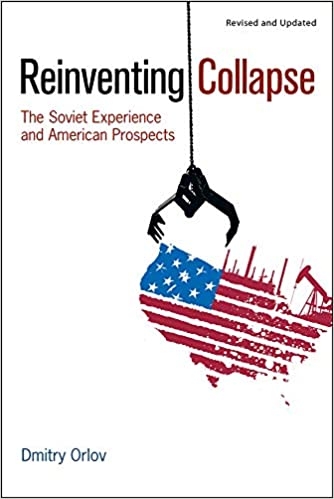 7. Je crois que les hommes politiques doivent assumer l’entière responsabilité de leurs paroles comme de leurs actes, et que cette responsabilité doit être mise en œuvre par le biais du droit administratif et pénal. Les politiciens doivent assumer la responsabilité personnelle et matérielle de toutes les promesses qu’ils font pendant leur campagne et le non-respect de ces promesses devrait être assimilé à une rupture de contrat et à une négligence criminelle. Cela fait de moi non seulement un gauchiste mais aussi un stalinien pur et dur, puisque c’est sous Staline que les fonctionnaires ont particulièrement découvert la facilité de passer d’un travail de bureau à un travail à l’extérieur avec un pic à glace et une pelle à neige.
7. Je crois que les hommes politiques doivent assumer l’entière responsabilité de leurs paroles comme de leurs actes, et que cette responsabilité doit être mise en œuvre par le biais du droit administratif et pénal. Les politiciens doivent assumer la responsabilité personnelle et matérielle de toutes les promesses qu’ils font pendant leur campagne et le non-respect de ces promesses devrait être assimilé à une rupture de contrat et à une négligence criminelle. Cela fait de moi non seulement un gauchiste mais aussi un stalinien pur et dur, puisque c’est sous Staline que les fonctionnaires ont particulièrement découvert la facilité de passer d’un travail de bureau à un travail à l’extérieur avec un pic à glace et une pelle à neige.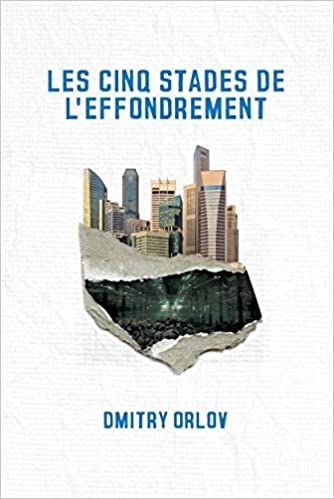 Le livre de Dmitry Orlov est l’un des ouvrages fondateurs de cette nouvelle « discipline » que l’on nomme aujourd’hui : « collapsologie » c’est à-dire l’étude de l’effondrement des sociétés ou des civilisations.
Le livre de Dmitry Orlov est l’un des ouvrages fondateurs de cette nouvelle « discipline » que l’on nomme aujourd’hui : « collapsologie » c’est à-dire l’étude de l’effondrement des sociétés ou des civilisations.








 del.icio.us
del.icio.us
 Digg
Digg
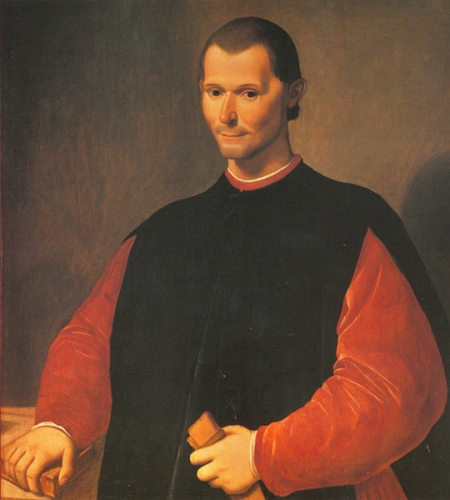
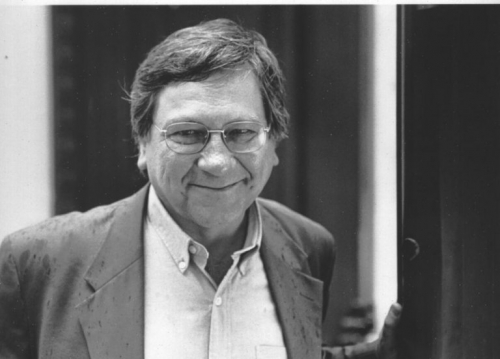
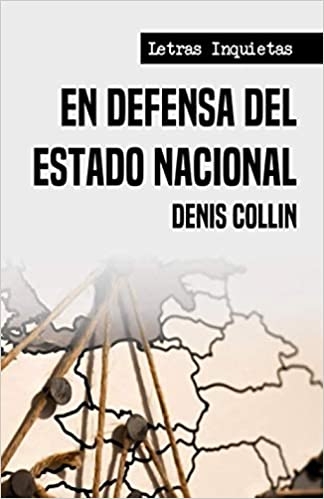 Pourquoi un livre pour la défense des États-nations?
Pourquoi un livre pour la défense des États-nations?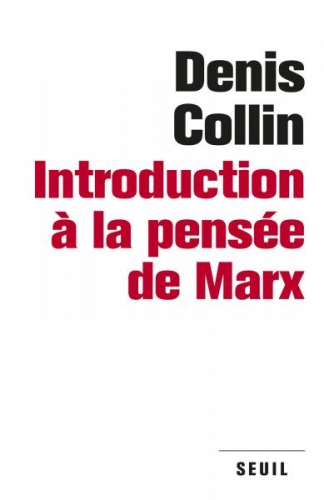 La Première Guerre mondiale a été le premier coup porté aux États-nations. Mais c’est surtout avec la Seconde Guerre mondiale que se mettent en place les premières institutions de « gouvernance globale », sous couvert de l’ONU ou en dehors comme l’OTAN, le GATT. On est entré à ce moment dans l’ère de la souveraineté limitée.
La Première Guerre mondiale a été le premier coup porté aux États-nations. Mais c’est surtout avec la Seconde Guerre mondiale que se mettent en place les premières institutions de « gouvernance globale », sous couvert de l’ONU ou en dehors comme l’OTAN, le GATT. On est entré à ce moment dans l’ère de la souveraineté limitée. ONU, OTAN, Union européenne, Organisation mondiale du commerce, Organisation mondiale de la santé ... Est-il encore possible de défendre les États nationaux?
ONU, OTAN, Union européenne, Organisation mondiale du commerce, Organisation mondiale de la santé ... Est-il encore possible de défendre les États nationaux?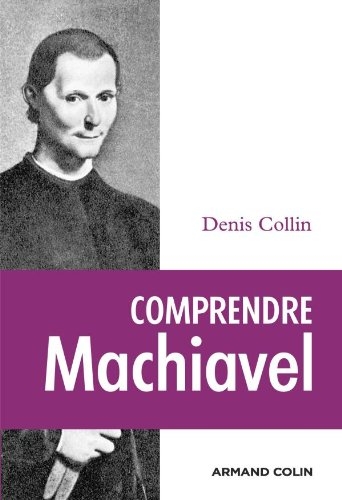 Donc les seules forces vraiment intéressées à la défense de l’État-nation sont celles pour qui il est la seule protection : les ouvriers, les travailleurs indépendants, les petits patrons, les précaires « uberisés » et sans doute quelques vestiges de l’ancienne classe dominante qui ne veulent pas voir disparaître ce en quoi ils croient. Tout cela peut faire un « bloc de classes », dans l’optique envisagée jadis par Gramsci. Les Gilets Jaunes avaient un temps esquissé un tel bloc.
Donc les seules forces vraiment intéressées à la défense de l’État-nation sont celles pour qui il est la seule protection : les ouvriers, les travailleurs indépendants, les petits patrons, les précaires « uberisés » et sans doute quelques vestiges de l’ancienne classe dominante qui ne veulent pas voir disparaître ce en quoi ils croient. Tout cela peut faire un « bloc de classes », dans l’optique envisagée jadis par Gramsci. Les Gilets Jaunes avaient un temps esquissé un tel bloc.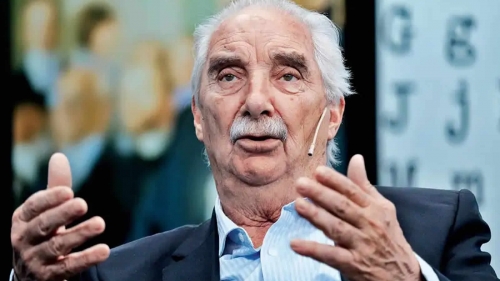



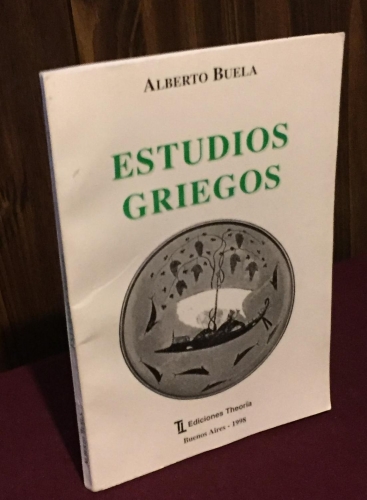
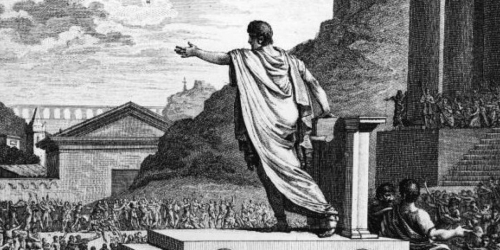

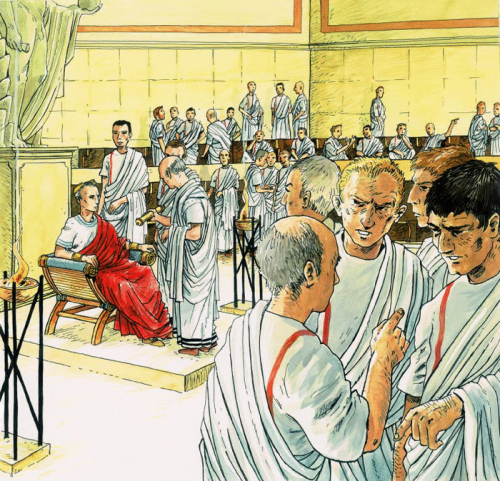
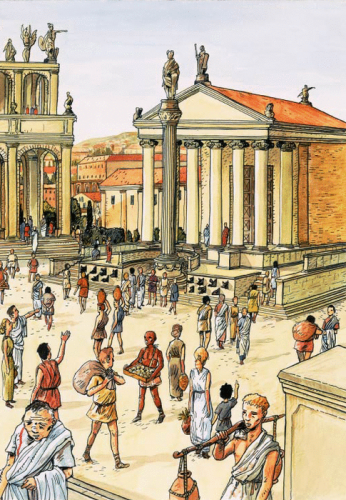

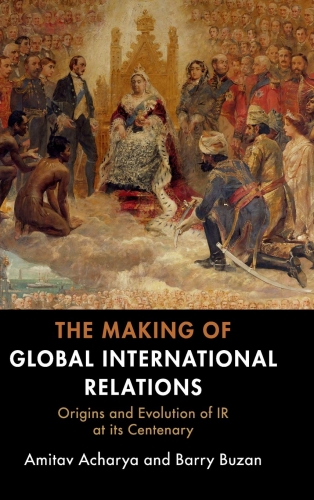
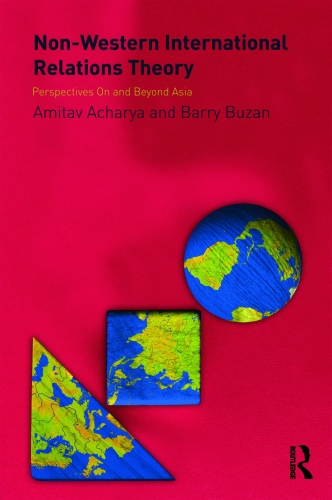
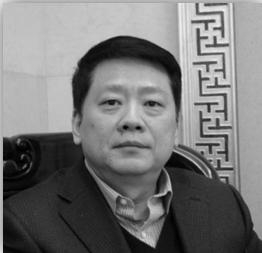


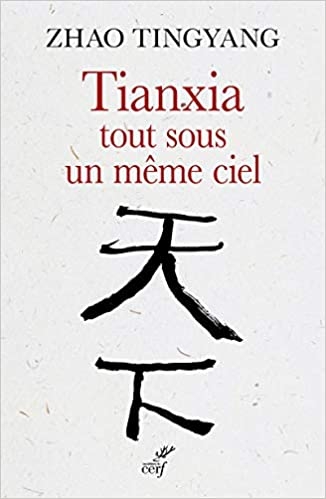
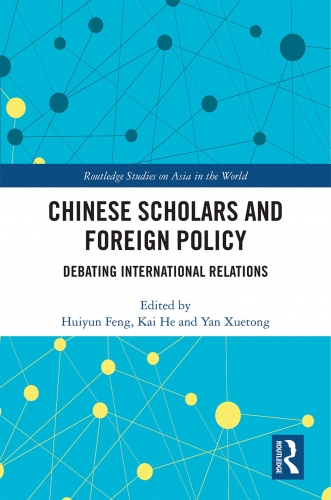

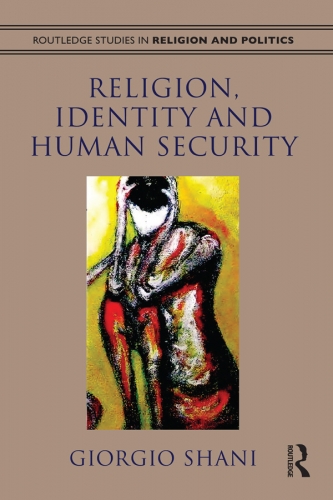

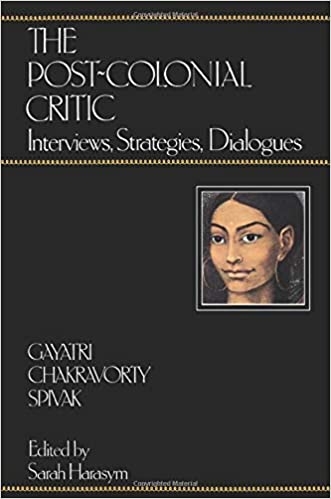


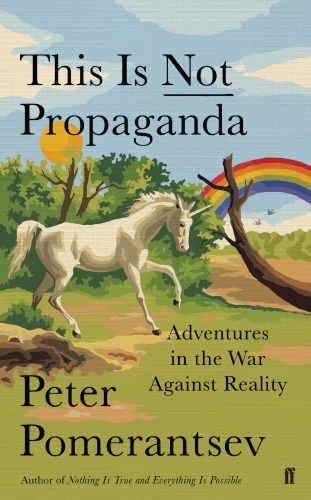
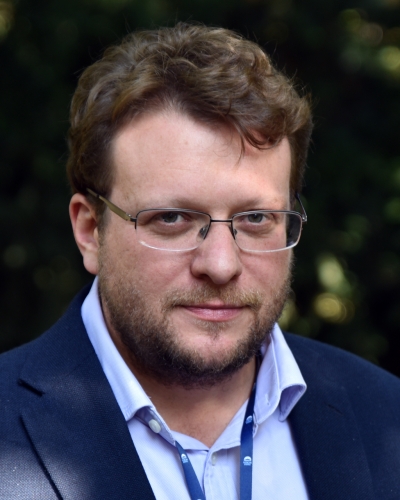






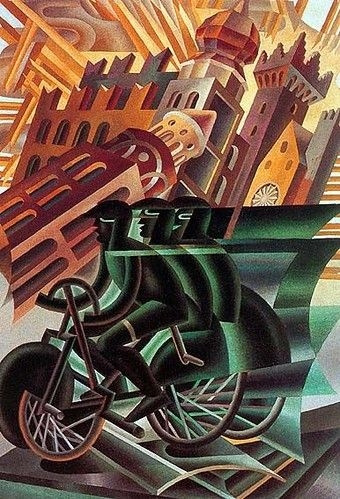

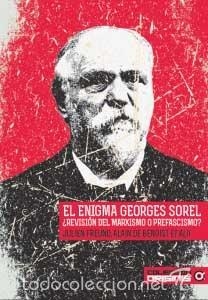 Notons qu'à ce sujet nous comptons organiser un redressement critique d'un certain socialisme français qui s'intègrera avec le tout doctrinal. En effet, nous pensons que certains théoriciens de l'école française, Georges Sorel et Edouard Berth pour ne citer qu'eux, se sont fait accaparer par une bande d'intellectuels parisiens vaguement de droite pour devenir des sujets de discussion dans les salons de la capitale, alors qu'ils n'ont aucune légitimité pour aborder ces questions qui ne peuvent les concerner directement sauf dans l'idée de parader intellectuellement. Or, rappelons que G. Sorel qualifie son socialisme de "philosophie des producteurs".
Notons qu'à ce sujet nous comptons organiser un redressement critique d'un certain socialisme français qui s'intègrera avec le tout doctrinal. En effet, nous pensons que certains théoriciens de l'école française, Georges Sorel et Edouard Berth pour ne citer qu'eux, se sont fait accaparer par une bande d'intellectuels parisiens vaguement de droite pour devenir des sujets de discussion dans les salons de la capitale, alors qu'ils n'ont aucune légitimité pour aborder ces questions qui ne peuvent les concerner directement sauf dans l'idée de parader intellectuellement. Or, rappelons que G. Sorel qualifie son socialisme de "philosophie des producteurs".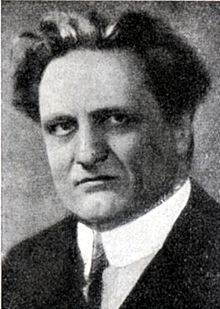 Son autre tort fût également de se séparer de personnes de valeur comme Alberto De Stefani (photo), qui était un libéral, d'où le plaidoyer de Mussolini lors de son premier discours à la Chambre en 1921 en faveur de "l'Etat manchestérien" et de la fin du socialisme.
Son autre tort fût également de se séparer de personnes de valeur comme Alberto De Stefani (photo), qui était un libéral, d'où le plaidoyer de Mussolini lors de son premier discours à la Chambre en 1921 en faveur de "l'Etat manchestérien" et de la fin du socialisme.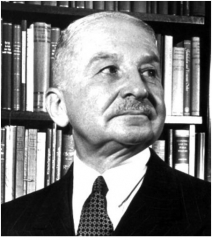 L. von Mises (photo) fût l'un des principaux conseiller, le plus privilégié, selon Hans Hermann Hoppe, d'Engelbert Dollfuss. L. von Mises était économiste en chef à la chambre de commerce autrichienne, il était également membre du Front Patriotique (Vaterländische Front), parti d'extrême-droite. Le régime de Dollfuss s'appelait l'austro-fascisme.
L. von Mises (photo) fût l'un des principaux conseiller, le plus privilégié, selon Hans Hermann Hoppe, d'Engelbert Dollfuss. L. von Mises était économiste en chef à la chambre de commerce autrichienne, il était également membre du Front Patriotique (Vaterländische Front), parti d'extrême-droite. Le régime de Dollfuss s'appelait l'austro-fascisme.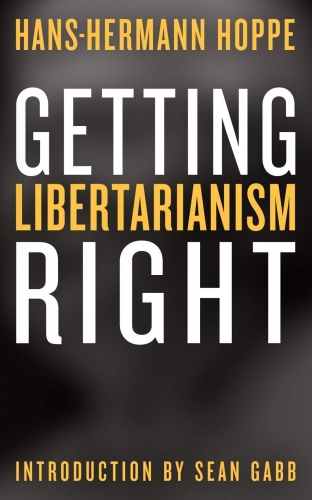
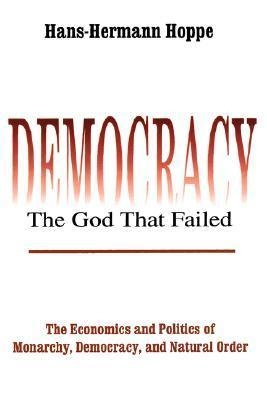 L'Etat en est arrivé à un point d'endettement très fort qui absorbe les possibilités de crédit et qui rend plus difficile l’accès au crédit des agents économiques privés. Il faudrait revenir à un endettement étatique plus faible afin que la monnaie retrouve son rôle naturel de financement de l'activité. Tout endettement étatique supplémentaire nous éloigne d'un moindre endettement de l'Etat.
L'Etat en est arrivé à un point d'endettement très fort qui absorbe les possibilités de crédit et qui rend plus difficile l’accès au crédit des agents économiques privés. Il faudrait revenir à un endettement étatique plus faible afin que la monnaie retrouve son rôle naturel de financement de l'activité. Tout endettement étatique supplémentaire nous éloigne d'un moindre endettement de l'Etat.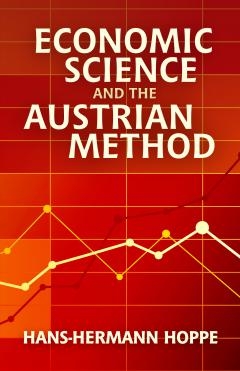 [5] On peut signaler la très bonne intuition du proto-anarcho-fasciste Proudhon :
[5] On peut signaler la très bonne intuition du proto-anarcho-fasciste Proudhon :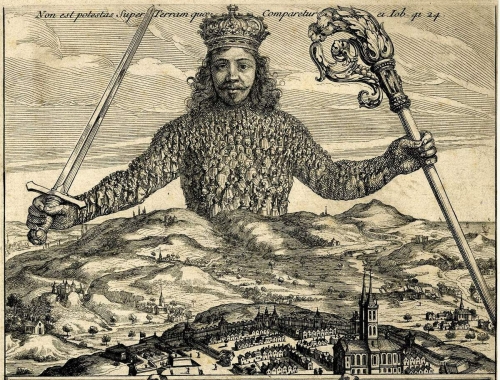


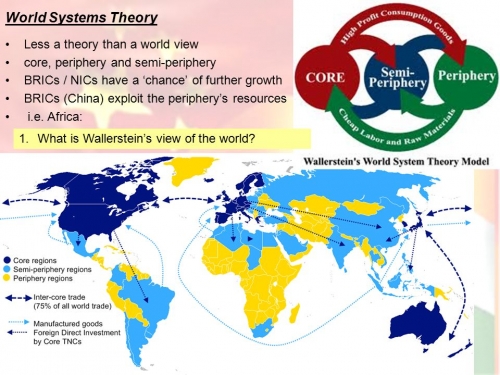
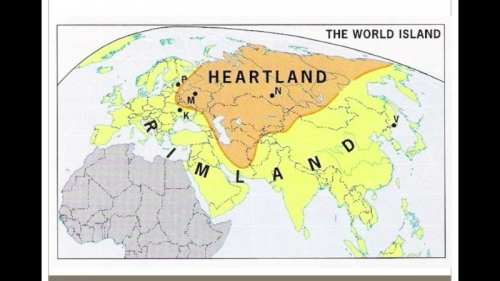
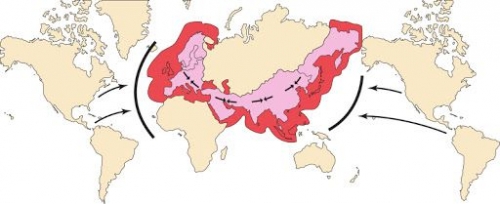
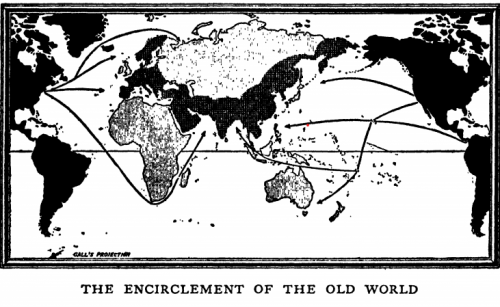
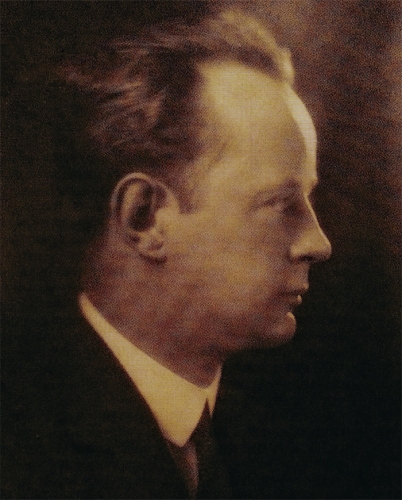
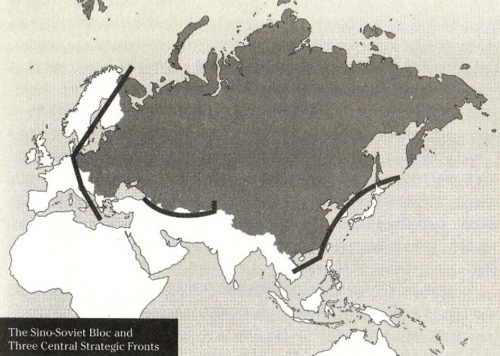
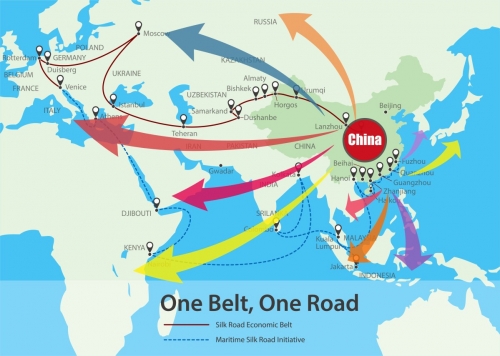
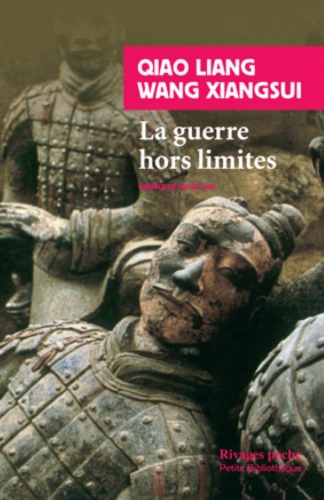


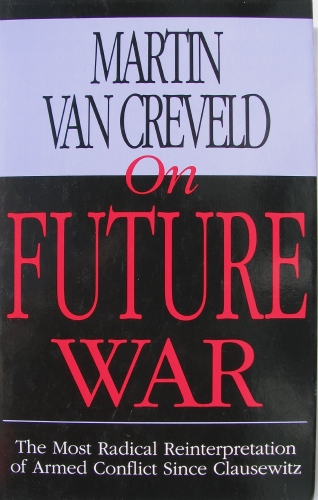










 Joseph Arthur de Gobineau et les deux lois du genre humain
Joseph Arthur de Gobineau et les deux lois du genre humain
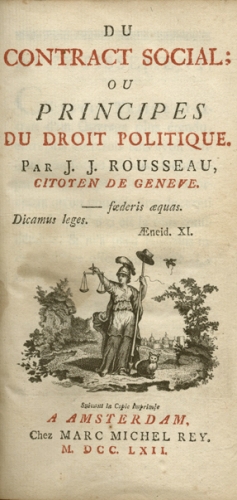 Le monde naturel, en toutes ses expressions, anthropologiques et sociales, ne connaît guère l'égalité, soit-elle de constitution, d'intelligence ou de connaissance. Le monde naturel tel qu'il est, lorsqu'il naît, ne connaît pas non plus l'égalité morale entre les hommes mais la moralité du glaive et la proportionnalité de la violence. En effet, la maîtrise des conceptions éthiques ou des vérités transcendantes est individuelle et unique et l'accès au divin, hors de la raison humaine, est, pour ainsi dire, miraculeux. La grâce et la doctrine de la foi appartiennent aux élus de Dieu et ne peuvent se partager, en tant que biens spirituels supérieurs et discriminants. La grâce et la doctrine de la foi s'opposent aux théories du contrat qui font dériver la constitution des communautés politiques d'une convention ou d'un pacte, totalement imaginaires, entre égaux.
Le monde naturel, en toutes ses expressions, anthropologiques et sociales, ne connaît guère l'égalité, soit-elle de constitution, d'intelligence ou de connaissance. Le monde naturel tel qu'il est, lorsqu'il naît, ne connaît pas non plus l'égalité morale entre les hommes mais la moralité du glaive et la proportionnalité de la violence. En effet, la maîtrise des conceptions éthiques ou des vérités transcendantes est individuelle et unique et l'accès au divin, hors de la raison humaine, est, pour ainsi dire, miraculeux. La grâce et la doctrine de la foi appartiennent aux élus de Dieu et ne peuvent se partager, en tant que biens spirituels supérieurs et discriminants. La grâce et la doctrine de la foi s'opposent aux théories du contrat qui font dériver la constitution des communautés politiques d'une convention ou d'un pacte, totalement imaginaires, entre égaux.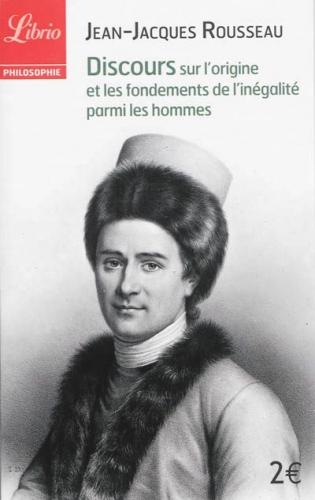 Par ailleurs, et au niveau idéologique, la séduction totalitaire de l'égalité et l'absorption de l'individu dans la masse font vivre le sujet en dehors de sa nature concrète, dans la généralité abstraite d'un concept qui le prive de sa volonté et lui interdit de réaliser sa propre valeur. Pour les « intellectuels collectifs », ce nirvana égalitariste fait fi du néant intérieur et leur permet d'aimer l'humanité par substitution, à travers une relation anonyme, fondée sur une éthique sans spiritualité ou sentiments, qui a son corrélat immédiat dans une morale utilitariste et dans un juridisme bureaucratique diffus. Le transfert de la relation d'amour vers l'idée ou vers l'humanité s'accompagne de la perversion qui consiste à oublier son peuple, sa société et sa culture pour un secours sans frontières aux démunis de l'Histoire. Le cosmopolitisme intellectuel pratiqué comme sentiment abstrait et comme amour de l'humanité prend la forme d'un élan généreux et gratuit pour les malheureux du monde, l'immigré, l'étranger, le clandestin, le misérable, le sans abri, le damné de la mer qui est la forme éthérée de l'emprise du désordre sur notre monde et sur sa culture. Si l'égalité globale cache sa tare congénitale dans le monisme de la « raison pure » et sous la façade de l'idéal démocratique, elle perd le sens du lien social qui la justifie, et se nourrit d'une ukaze philosophique et justificative, fondée sur le mythe de la paix et sur l'impératif catégorique de référence kantienne.
Par ailleurs, et au niveau idéologique, la séduction totalitaire de l'égalité et l'absorption de l'individu dans la masse font vivre le sujet en dehors de sa nature concrète, dans la généralité abstraite d'un concept qui le prive de sa volonté et lui interdit de réaliser sa propre valeur. Pour les « intellectuels collectifs », ce nirvana égalitariste fait fi du néant intérieur et leur permet d'aimer l'humanité par substitution, à travers une relation anonyme, fondée sur une éthique sans spiritualité ou sentiments, qui a son corrélat immédiat dans une morale utilitariste et dans un juridisme bureaucratique diffus. Le transfert de la relation d'amour vers l'idée ou vers l'humanité s'accompagne de la perversion qui consiste à oublier son peuple, sa société et sa culture pour un secours sans frontières aux démunis de l'Histoire. Le cosmopolitisme intellectuel pratiqué comme sentiment abstrait et comme amour de l'humanité prend la forme d'un élan généreux et gratuit pour les malheureux du monde, l'immigré, l'étranger, le clandestin, le misérable, le sans abri, le damné de la mer qui est la forme éthérée de l'emprise du désordre sur notre monde et sur sa culture. Si l'égalité globale cache sa tare congénitale dans le monisme de la « raison pure » et sous la façade de l'idéal démocratique, elle perd le sens du lien social qui la justifie, et se nourrit d'une ukaze philosophique et justificative, fondée sur le mythe de la paix et sur l'impératif catégorique de référence kantienne.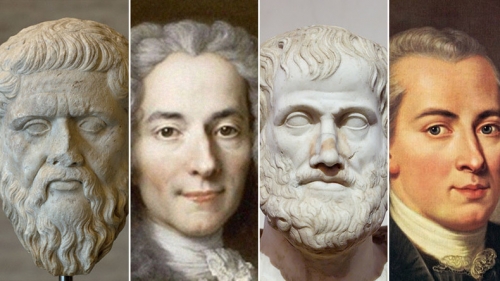
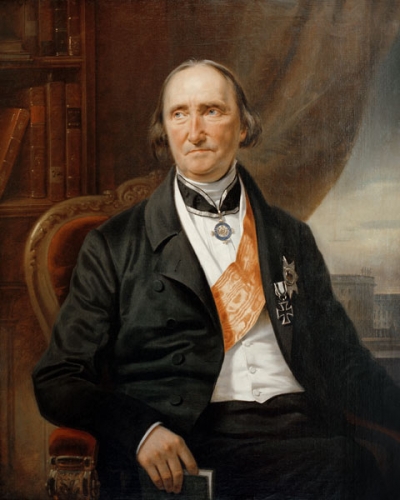


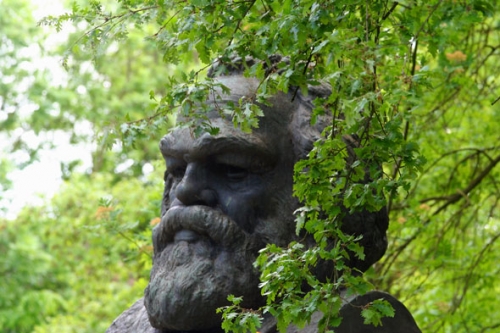
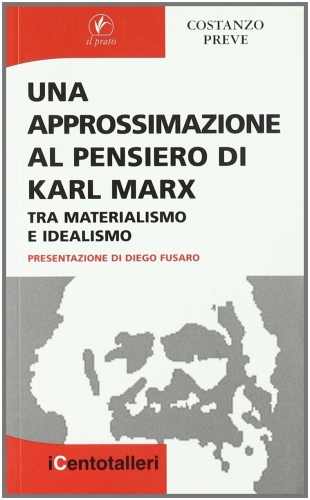 La praxis marxiste est un dépassement de la contemplation (theorein) de l'Être social. Il serait préférable de dire qu'il s'agit d'une super-contemplation. La praxis marxiste, et non une quelconque "science du matérialisme historique", consiste à affronter le passé. Le prendre en charge, le questionner, se dire ce qu'il y a de lui en moi, et ce que je peux faire, ce que nous pouvons faire pour éviter que ce passé ne devienne despotique. Comme le dit mon ami Diego Fusaro, bon élève de Gramsci et de Preve à la fois, il s'agit de "défataliser l'existant". Le passé non affronté, le passé assumé sans autre forme de procès, comme une roue inexorable à laquelle nous sommes liés et au type de laquelle nous sommes condamnés à participer, est un passé qui, en tant que tel, n'est pas modifiable. Saint Thomas a déjà dit dans la Summa Theologiae que ni Dieu ni le passé ne peuvent le changer (ce serait une autre chose de dire que Dieu aurait pu faire en sorte que le passé soit différent). Il n'existe aucun pouvoir, aussi divin soit-il, qui puisse transmuter le passé. Mais il existe un pouvoir, celui de la raison et de la compréhension humaines, qui est capable de "défataliser" le passé. Et comment le passé peut-il être défloré ? En rendant aux masses populaires leur capacité de résistance à l'Horreur. En rendant à la conscience collective de la société son sentiment d'être des sujets dotés d'un pouvoir pratique.
La praxis marxiste est un dépassement de la contemplation (theorein) de l'Être social. Il serait préférable de dire qu'il s'agit d'une super-contemplation. La praxis marxiste, et non une quelconque "science du matérialisme historique", consiste à affronter le passé. Le prendre en charge, le questionner, se dire ce qu'il y a de lui en moi, et ce que je peux faire, ce que nous pouvons faire pour éviter que ce passé ne devienne despotique. Comme le dit mon ami Diego Fusaro, bon élève de Gramsci et de Preve à la fois, il s'agit de "défataliser l'existant". Le passé non affronté, le passé assumé sans autre forme de procès, comme une roue inexorable à laquelle nous sommes liés et au type de laquelle nous sommes condamnés à participer, est un passé qui, en tant que tel, n'est pas modifiable. Saint Thomas a déjà dit dans la Summa Theologiae que ni Dieu ni le passé ne peuvent le changer (ce serait une autre chose de dire que Dieu aurait pu faire en sorte que le passé soit différent). Il n'existe aucun pouvoir, aussi divin soit-il, qui puisse transmuter le passé. Mais il existe un pouvoir, celui de la raison et de la compréhension humaines, qui est capable de "défataliser" le passé. Et comment le passé peut-il être défloré ? En rendant aux masses populaires leur capacité de résistance à l'Horreur. En rendant à la conscience collective de la société son sentiment d'être des sujets dotés d'un pouvoir pratique.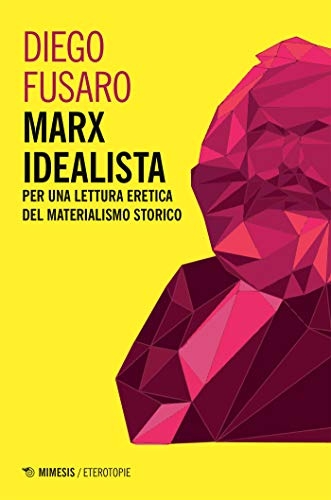 L'action d'une masse libre (sans peur) implique nécessairement la "contemplation" du passé, et son assomption ontologique adéquate. Le passé en tant que tel n'est pas modifiable, mais évacuer l'ombre de ce passé qui pèse sur nous est de la responsabilité de ceux parmi nous qui se rangent du côté de l'action des masses, d'un vulgaire qui a perdu sa peur.
L'action d'une masse libre (sans peur) implique nécessairement la "contemplation" du passé, et son assomption ontologique adéquate. Le passé en tant que tel n'est pas modifiable, mais évacuer l'ombre de ce passé qui pèse sur nous est de la responsabilité de ceux parmi nous qui se rangent du côté de l'action des masses, d'un vulgaire qui a perdu sa peur.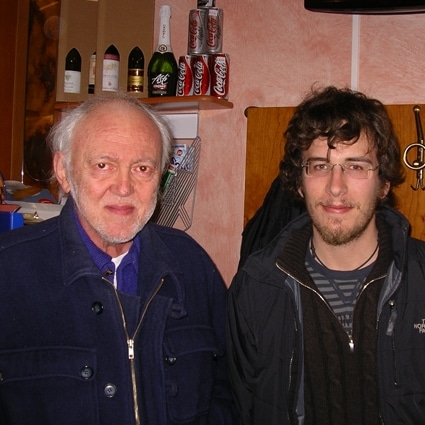
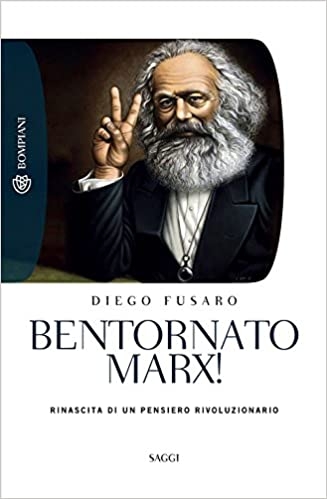
 Cependant, l'objectivation et l'aliénation ne sont pas la même chose. Nous revenons à A. Prior :
Cependant, l'objectivation et l'aliénation ne sont pas la même chose. Nous revenons à A. Prior :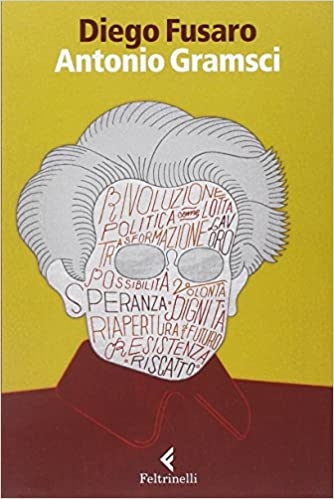 Marx s'inscrit dans la meilleure tradition idéaliste et, avant elle, dans la tradition réaliste aristotélicienne. Ce que Marx a brillamment et grandiosement construit, c'est une ontologie de l'être social, une ontologie de l'homme en tant qu'être essentiellement communautaire qui, depuis son arrivée au niveau de lacivilisation, a toujours lutté contre les forces désintégratrices, dissolvantes, atomistiques. L'ontologie de l'être social est, à la fois, theoria, contemplation de cette réalité qui inclut l'être individuel et collectif lui-même, les êtres contemplatifs, mais en même temps, elle est, nécessairement, une philosophie de la praxis : de l'action consciente dans la société, action qui cherche la transformation des structures politico-économiques qui, parce qu'elles sont injustes, sont irrationnelles et parce qu'elles sont irrationnelles, elles sont injustes.
Marx s'inscrit dans la meilleure tradition idéaliste et, avant elle, dans la tradition réaliste aristotélicienne. Ce que Marx a brillamment et grandiosement construit, c'est une ontologie de l'être social, une ontologie de l'homme en tant qu'être essentiellement communautaire qui, depuis son arrivée au niveau de lacivilisation, a toujours lutté contre les forces désintégratrices, dissolvantes, atomistiques. L'ontologie de l'être social est, à la fois, theoria, contemplation de cette réalité qui inclut l'être individuel et collectif lui-même, les êtres contemplatifs, mais en même temps, elle est, nécessairement, une philosophie de la praxis : de l'action consciente dans la société, action qui cherche la transformation des structures politico-économiques qui, parce qu'elles sont injustes, sont irrationnelles et parce qu'elles sont irrationnelles, elles sont injustes.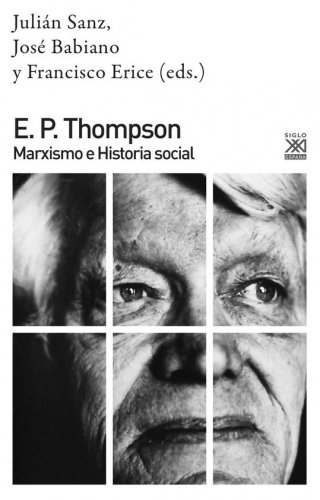 "Ce que fait Althusser n'est pas tant de confondre la pensée avec le réel que de priver le réel de ses propres déterminants en affirmant l'inconnaissabilité du réel, réduisant ainsi le réel à la théorie."
"Ce que fait Althusser n'est pas tant de confondre la pensée avec le réel que de priver le réel de ses propres déterminants en affirmant l'inconnaissabilité du réel, réduisant ainsi le réel à la théorie."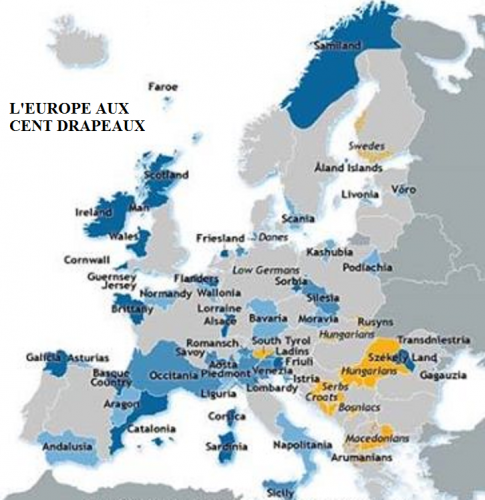
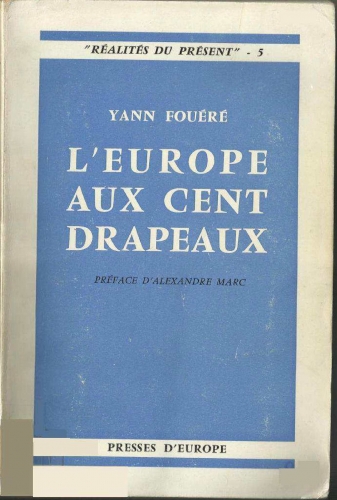

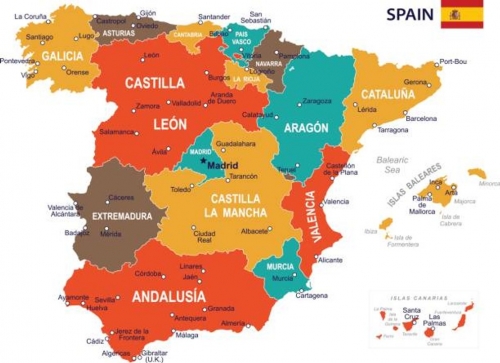
 Le lien nécessaire entre la terre et la population
Le lien nécessaire entre la terre et la population
 Et cette diversité représente les cent drapeaux d’une Europe non pas éclatée, mais unie dans l’esprit de sa diversité. L’exemple corse montre aux peuples de France l’exemple au moins institutionnel à suivre. Savez-vous que Jean Mabire a été obligé d’arrêter de donner des libres propos dans National Hebdo, l’ancien journal du Front national (FN) parce qu’il y avait affirmé l’existence du peuple corse, en 1991 ? La difficile affirmation d’une identité française surannée laisse, de facto, liberté aux peuples de France à la libre expression. Les seules minorités ethniques reconnues constitutionnellement sont des communautés ultra-marine, or la terre d’Europe, dont la terre française fait partie, est fertile en peuples, en nations non-étatiques.
Et cette diversité représente les cent drapeaux d’une Europe non pas éclatée, mais unie dans l’esprit de sa diversité. L’exemple corse montre aux peuples de France l’exemple au moins institutionnel à suivre. Savez-vous que Jean Mabire a été obligé d’arrêter de donner des libres propos dans National Hebdo, l’ancien journal du Front national (FN) parce qu’il y avait affirmé l’existence du peuple corse, en 1991 ? La difficile affirmation d’une identité française surannée laisse, de facto, liberté aux peuples de France à la libre expression. Les seules minorités ethniques reconnues constitutionnellement sont des communautés ultra-marine, or la terre d’Europe, dont la terre française fait partie, est fertile en peuples, en nations non-étatiques.
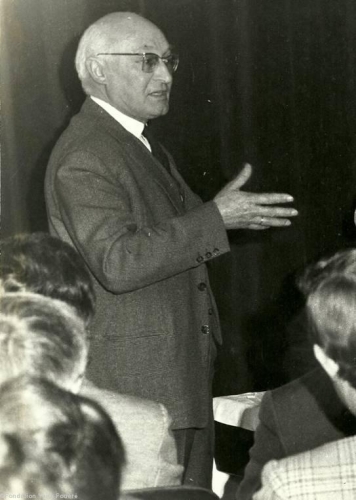


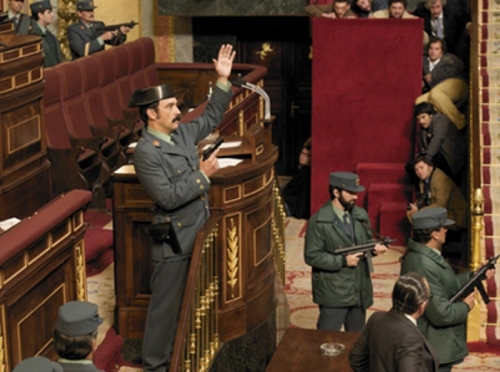

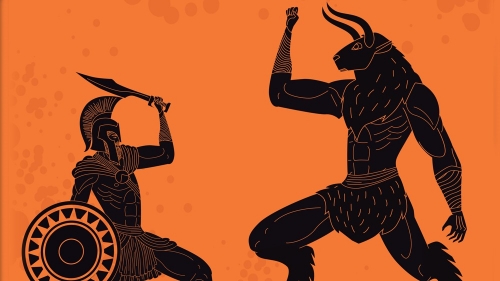
 Pour se procurer le livre, voici le lien vers le site de la nouvelle librairie :
Pour se procurer le livre, voici le lien vers le site de la nouvelle librairie : 
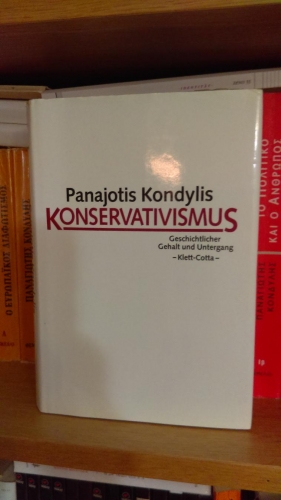

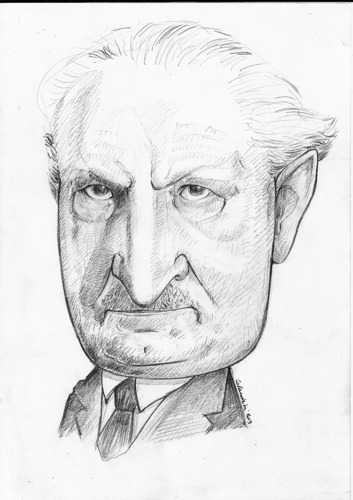 Pourrions-nous dire, effectivement, que nous pensons aujourd’hui par nous-mêmes ? La feinte consistant à répondre positivement à cette question est fort amène, mais elle ne saurait camoufler aux esprits perspicaces, sous ses beaux atours, que nous avons acquis depuis quelques temps une capacité hors du commun à nous laisser gouverner par des injonctions, très souvent - et à dessein - contradictoires, émanant des puissances médiatiques officielles, modes y compris. Nous sommes en effet de nos jours, et ce de plus en plus, dirigés par ce que l’on nomme des « impératifs », qui ne le sont que parce que nous nous sommes laissés entraîner dans une chaîne sans fin de « raisons » et de « résultats ». La « raison » qui nous guide n’est plus réellement la nôtre au regard des injonctions qu’elle nous impose à ne plus penser à la nature de nos êtres, mais plutôt à l’obligation de satisfaire à nos intérêts ! Au fond, c’est toujours la même logique, déclinée sous diverses modalités, qui commande les hommes et leurs pensées.
Pourrions-nous dire, effectivement, que nous pensons aujourd’hui par nous-mêmes ? La feinte consistant à répondre positivement à cette question est fort amène, mais elle ne saurait camoufler aux esprits perspicaces, sous ses beaux atours, que nous avons acquis depuis quelques temps une capacité hors du commun à nous laisser gouverner par des injonctions, très souvent - et à dessein - contradictoires, émanant des puissances médiatiques officielles, modes y compris. Nous sommes en effet de nos jours, et ce de plus en plus, dirigés par ce que l’on nomme des « impératifs », qui ne le sont que parce que nous nous sommes laissés entraîner dans une chaîne sans fin de « raisons » et de « résultats ». La « raison » qui nous guide n’est plus réellement la nôtre au regard des injonctions qu’elle nous impose à ne plus penser à la nature de nos êtres, mais plutôt à l’obligation de satisfaire à nos intérêts ! Au fond, c’est toujours la même logique, déclinée sous diverses modalités, qui commande les hommes et leurs pensées.


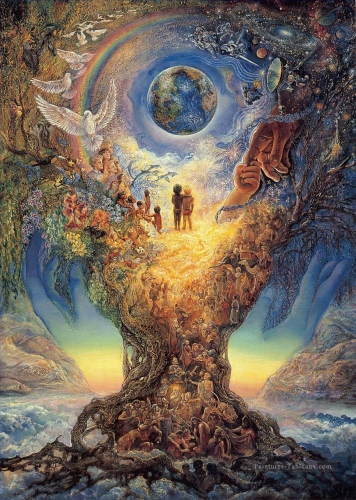


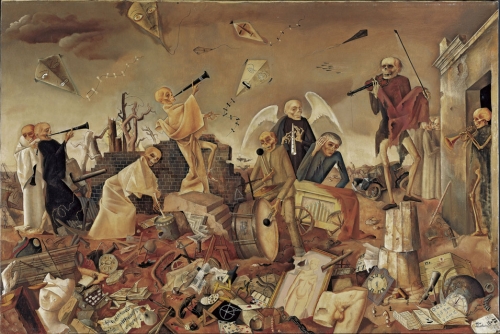

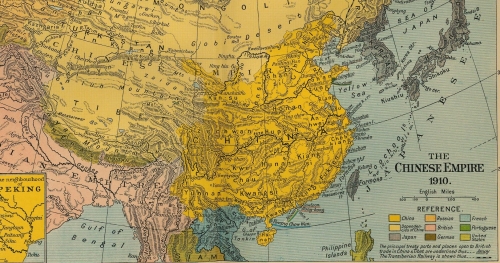
 Face à l'effondrement rapide du système, la Chine, en tant qu'État dissident au sein de l'empire, si elle veut assumer un rôle de premier plan dans la construction de ce qui a été défini par Schmitt comme le "nouveau nomos de la terre", devra fournir une solution capable de faire coexister différentes instances ; une "harmonie sans uniformité" (ou "unité dans la multiplicité"). Le concept d'"harmonie sans uniformité" occupe une place centrale dans la pensée traditionnelle chinoise. Cette pensée, en fait, n'a jamais été "unipolaire". La représentation chinoise de l'Univers lui-même n'a jamais été moniste. Elle s'inspire traditionnellement de l'idée que l'ensemble est réparti en groupements différents et hiérarchisés différemment. Le ciel est un et la terre est multiple. Le Dieu du Ciel, selon la cosmogonie sinique, a été conçu d’emblée comme une seule personne, fragmentée en différentes hypostases. Et ces hypostases tiraient leurs attributs des particularités des régions terrestres auxquelles elles étaient affectées.
Face à l'effondrement rapide du système, la Chine, en tant qu'État dissident au sein de l'empire, si elle veut assumer un rôle de premier plan dans la construction de ce qui a été défini par Schmitt comme le "nouveau nomos de la terre", devra fournir une solution capable de faire coexister différentes instances ; une "harmonie sans uniformité" (ou "unité dans la multiplicité"). Le concept d'"harmonie sans uniformité" occupe une place centrale dans la pensée traditionnelle chinoise. Cette pensée, en fait, n'a jamais été "unipolaire". La représentation chinoise de l'Univers lui-même n'a jamais été moniste. Elle s'inspire traditionnellement de l'idée que l'ensemble est réparti en groupements différents et hiérarchisés différemment. Le ciel est un et la terre est multiple. Le Dieu du Ciel, selon la cosmogonie sinique, a été conçu d’emblée comme une seule personne, fragmentée en différentes hypostases. Et ces hypostases tiraient leurs attributs des particularités des régions terrestres auxquelles elles étaient affectées.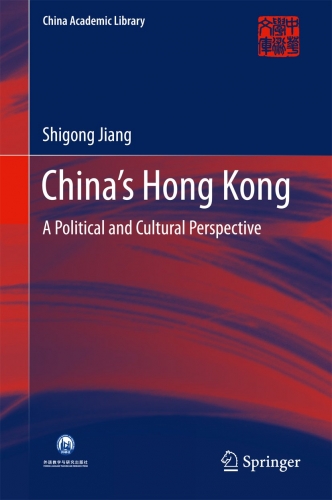
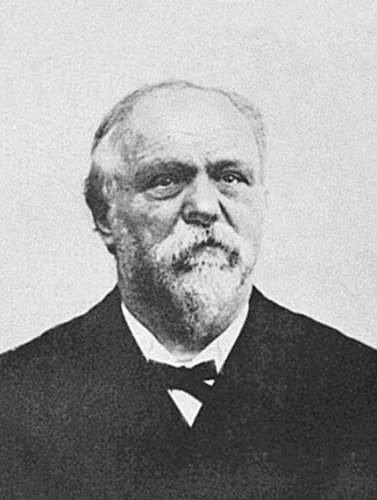

 C’est le processus qu’a fort bien décrit Bertrand de Jouvenel dans son immense livre « Du Pouvoir » : chaque décision du corps étatique n’a qu’un but : faire croitre le Léviathan, c’est-à-dire le pouvoir politique au détriment du peuple.
C’est le processus qu’a fort bien décrit Bertrand de Jouvenel dans son immense livre « Du Pouvoir » : chaque décision du corps étatique n’a qu’un but : faire croitre le Léviathan, c’est-à-dire le pouvoir politique au détriment du peuple.
![Sociologie_du_conflit___Julien_[...]Freund_Julien_bpt6k4806958w.JPEG](http://euro-synergies.hautetfort.com/media/02/01/2079207167.JPEG)
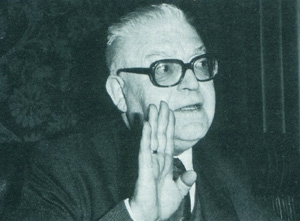 Quelle n’est pas leur surprise mâtinée d’horreur, lorsque, contre toute attente, surgit, comme satyre au détour d’un bois, la figure inattendue, brute – voire brutale – et grossière de l’antagonisme, surtout lorsqu’il est de nature politique ! C’est ainsi que le mémorable épisode antagonique de la prise d’assaut du siège du Congrès des États-Unis d’Amérique – une fraction du peuple s’étant élevée contre ses représentants élus – a littéralement sidéré les opinions publiques occidentales qui l’ensevelirent sans réserve – et sans nuance – sous un flot incontinent de réprobations excommunicatrices et de condamnations conjuratrices – l’on remarquera, en effet, que la démonologie et l’exorcisme ne sont, paradoxalement, jamais loin dans les esprits déspiritualisés et laïcisés de nos belles âmes offusquées…
Quelle n’est pas leur surprise mâtinée d’horreur, lorsque, contre toute attente, surgit, comme satyre au détour d’un bois, la figure inattendue, brute – voire brutale – et grossière de l’antagonisme, surtout lorsqu’il est de nature politique ! C’est ainsi que le mémorable épisode antagonique de la prise d’assaut du siège du Congrès des États-Unis d’Amérique – une fraction du peuple s’étant élevée contre ses représentants élus – a littéralement sidéré les opinions publiques occidentales qui l’ensevelirent sans réserve – et sans nuance – sous un flot incontinent de réprobations excommunicatrices et de condamnations conjuratrices – l’on remarquera, en effet, que la démonologie et l’exorcisme ne sont, paradoxalement, jamais loin dans les esprits déspiritualisés et laïcisés de nos belles âmes offusquées…